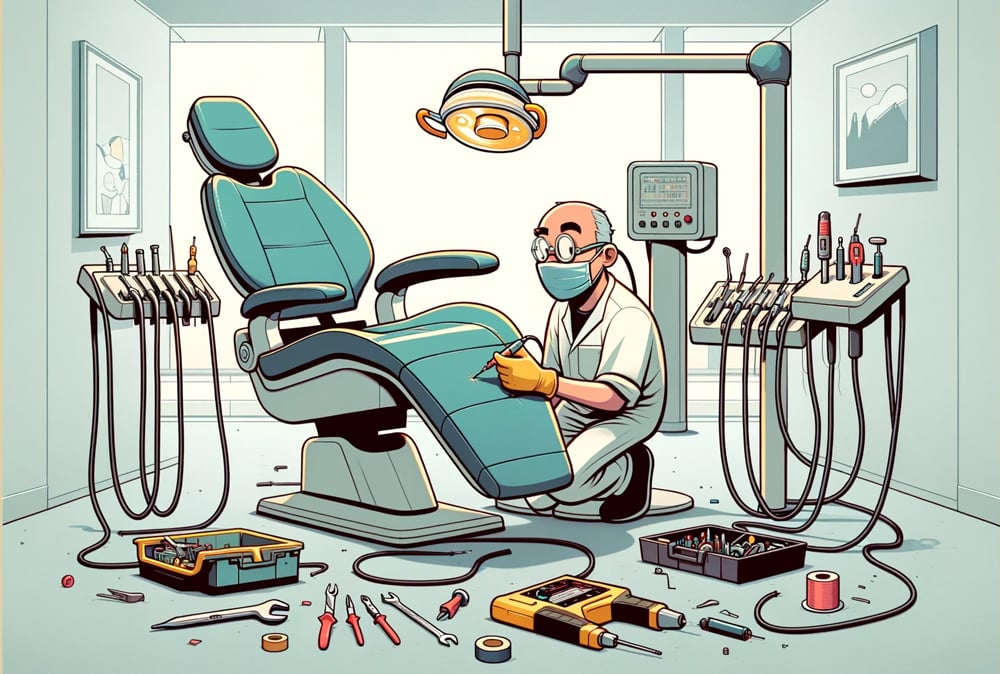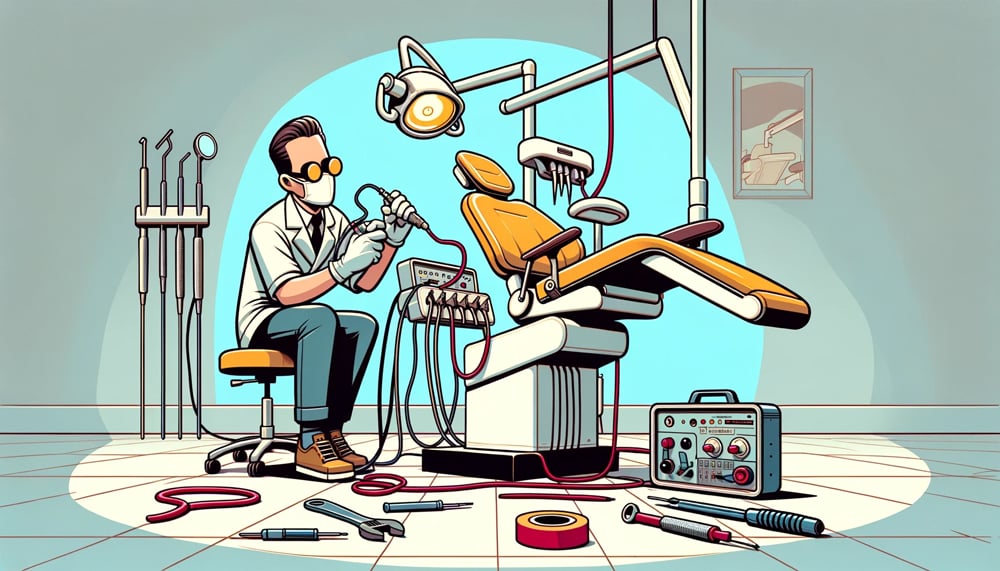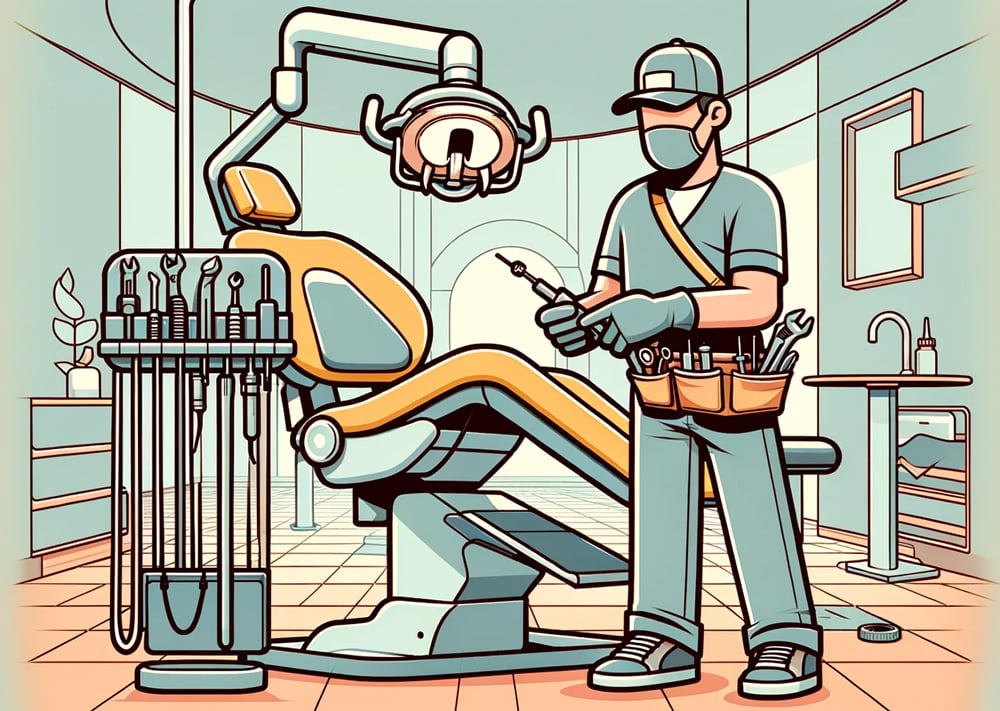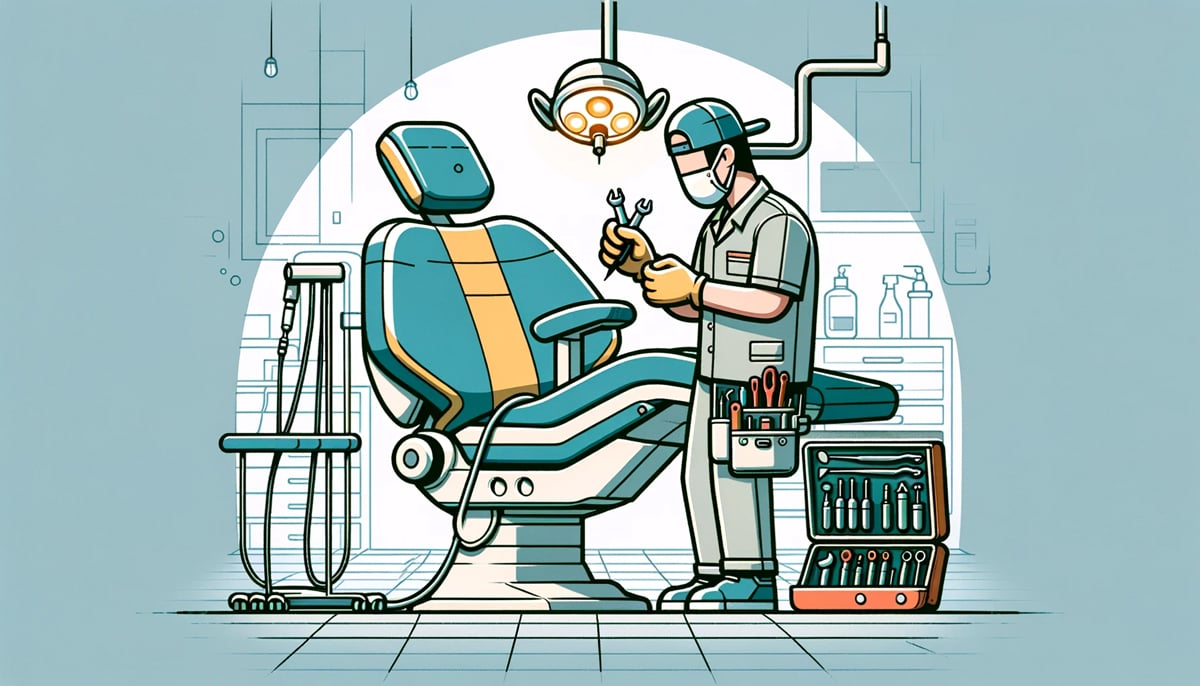I, Dr. Michael F., a seasoned dental professional with over 15 years of experience and specialization in Orthodontics, have witnessed firsthand the pivotal role that well-maintained dental chairs play in a practice’s success.
This article delves into the nuances of finding and selecting reliable repair services for these essential pieces of equipment.
The Importance of Reliable Dental Chair Repair Services
The Role of Dental Chairs in a Dental Practice
In any dental clinic, the chair is more than just a piece of furniture; it’s the command center for dental operations.
Its functionality directly impacts patient comfort and the efficiency of procedures.
A well-designed dental chair can enhance patient experience, reduce the physical strain on the dentist, and increase overall productivity.
Consequences of Malfunctioning Dental Chairs
A faulty dental chair is not just an inconvenience; it can be a liability. Malfunctions during treatments can lead to patient discomfort or, worse, injury, potentially damaging the clinic’s reputation.
Equipment downtime also disrupts schedules, affecting the clinic’s profitability and operational efficiency.
Also read Dental Chair Installation
Identifying Reliable Repair Services

Key Qualities to Look for in Repair Services
When seeking repair services, prioritize providers who offer prompt response times, proven expertise, and glowing customer testimonials.
Ensure they have experience with your chair’s brand and model and use quality parts for repairs.
Understanding the Types of Repairs Needed
Familiarize yourself with common dental chair issues like hydraulic malfunctions, electrical problems, or wear and tear of upholstery.
Knowing these can help you communicate more effectively with service providers and understand the scope of necessary repairs.
Researching and Choosing a Service Provider
How to Conduct Thorough Research
Start by exploring online resources, seeking recommendations from fellow dental professionals, and checking for professional certifications and licenses.
Pay attention to the service provider’s history and standing in the industry.
Evaluating Credentials and Testimonials
Credentials and customer feedback provide insights into the reliability and quality of the service.
Look for providers with solid credentials in dental equipment repair and read reviews from other dental practices to gauge their reputation.
Ensuring Quality and Reliability

Questions to Ask Potential Service Providers
Inquire about their experience with your specific chair model, warranty on repairs, availability of original parts, and time estimates for repairs. Clear communication here can prevent misunderstandings later.
Red Flags to Watch Out For
Be wary of services offering unusually low prices, vague responses, or lacking clear communication. These can be indicators of subpar service or lack of expertise.
Implementing Preventative Maintenance

The Role of Regular Maintenance in Avoiding Repairs
Preventative maintenance is crucial in extending the life of your dental chairs. Regular check-ups can identify potential issues before they escalate into costly repairs.
Setting Up a Maintenance Schedule
Work with a trusted service provider to establish a routine maintenance schedule. Regular maintenance can significantly reduce the frequency and severity of repairs needed.
Conclusion
Selecting the right repair service for your dental chairs is not just a task; it’s an investment in the quality of your practice.
Take the time to research, ask the right questions, and establish a maintenance routine to ensure the longevity and reliability of your equipment. Your patients and your practice will thank you for it.
FAQs about Dental Chair Repair Services
-
What are common signs that a dental chair needs repair?
Common signs include issues with chair adjustment, unusual noises, upholstery wear, and hydraulic or electrical malfunctions.
-
How often should dental chairs be serviced?
Regular maintenance is recommended every 6 to 12 months, depending on usage and manufacturer guidelines.
-
Can I perform minor repairs on my dental chair myself?
While some minor adjustments might be manageable, professional servicing is advised for most repairs to ensure safety and functionality.
-
What should I consider when choosing a dental chair repair service?
Consider factors like the provider’s experience, response time, customer reviews, and familiarity with your specific chair model.
-
How long does a typical dental chair repair take?
Repair time can vary based on the issue’s complexity, but most repairs are completed within a few hours to a couple of days.
-
Are there preventative measures I can take to avoid frequent repairs?
Regular maintenance, gentle usage, and immediate attention to minor issues can significantly reduce the frequency of repairs.
-
Is it cost-effective to repair an old dental chair or should I replace it?
This depends on the chair’s condition and repair costs versus the price of a new chair. Consult with a repair service for a professional assessment.
-
What warranty should I expect from a dental chair repair service?
Warranty terms vary, but look for services offering at least a few months of warranty on repairs and parts.


